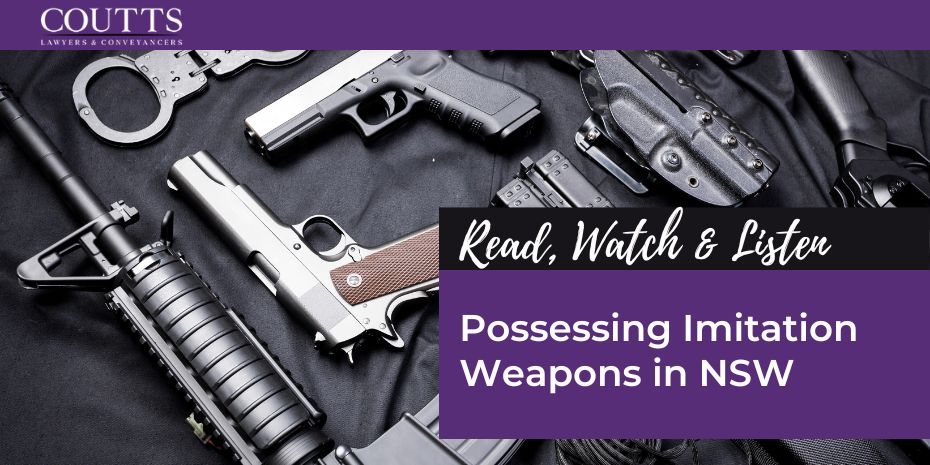Co-authored by: Isabel Strahan
KEY TAKE OUTS
- An application for an Apprehended Violence Order (‘AVO’) can be made by the Police on the victim’s behalf or personally by an individual.
- The two types of AVOs that can be sought are either an Apprehended Domestic Violence Order (‘ADVO’) by the Police or an Apprehended Personal Violence Order (‘APVO’) by the individual.
- If you apply for an APVO, be prepared to demonstrate to the Court your genuine fear that the person you are seeking the APVO against (the Defendant) will commit a personal violence offence towards you, intimidate or stalk you.
Apprehended Violence Orders are issued by a Court against a person who makes another individual fear for their safety. The law relating to these types of Orders is the Crimes (Domestic and Personal Violence) Act 2007 (NSW). If you are seeking an APVO to be issued against another individual, an application can be made privately or through the Police, which will result in civil proceedings being held in the Local Court.
An APVO is made by an individual when the Police are unwilling or unable to make the Application on the victim’s behalf. This usually occurs when the relationship between the parties is not necessarily domestic in nature. This type of AVO application means that the individual is responsible for running their own case including the preparation of evidence. Any person can apply to the Local Court for an APVO if they are over 16 years of age, have been either a victim of assault, threatened with harm, stalked, harassed, or intimidated, and fear similar behaviour from happening by the Defendant.
However, making a false or misleading application is considered to be a criminal offence, so it is important to seek legal advice before pursuing an APVO.
It is also important to note that if you have an ADVO or APVO that has named you as the Defendant, you do not have a criminal record, however, if you breach the conditions of the AVO, you will be criminally charged.
The Types of AVO
An Apprehended Domestic Violence Order (‘ADVO’) is an application made on behalf of the victim by the Police when there is a domestic relationship between the Defendant and the person seeking the order (‘protected person’). This includes a marital relationship, a de facto partner, an ex-partner, relatives, and individuals living in the same household. When an ADVO is granted, it automatically extends to any children of the protected person, who will also become protected under the Order, even if the Defendant is also a parent of the child.
An Apprehended Personal Violence Order (‘APVO’) is a private application that is made against an individual who is not related to the Defendant and does not have a domestic relationship, such as neighbours, co-workers etc.
What Do I Need to Prove?
In order for the Court to grant either an ADVO or APVO, they must be satisfied on the balance of probabilities that the protected person fears that the Defendant will commit a domestic violence related offence, stalk, or intimidate the protected person.
It must also be shown that this fear is based on reasonable grounds.
Therefore, if you are looking to apply for an APVO of this nature, be prepared to demonstrate to the Court any reasons for fearing that the Defendant will commit a personal violence offence, intimidate, or stalk you.
Conditions of the Orders
The Court will include conditions that are necessary to ensure the safety of the protected person.
The following are mandatory conditions of all ADVO’s or APVO’s that apply to the protected person or any person with whom they have a domestic relationship with under Section 36 of the Crimes (Domestic and Personal Violence) Act 2007 (NSW).:
- The Defendant is prohibited from assaulting or threatening the protected person or anyone that has a domestic relationship with the protected person,
- The Defendant is prohibited from stalking, harassing, or intimidating the protected person or anyone that has a domestic relationship with the protected person, and
- The Defendant is prohibited from intentionally or recklessly destroying or damaging property or harming an animal of the protected person or anyone that has a domestic relationship with the protected person.
There are additional conditions that can be included under Section 35, such as prohibiting approaches by the Defendant, access to the residence of the protected person and the possession of any firearms.
Summary of The Differences Between ADVO and APVO
| Apprehended Domestic Violence Order (ADVO) | Apprehended Personal Violence Order (APVO) |
| An ADVO relates to the protection of a person/s where a domestic relationship exists between the parties. | An APVO relates to the protection of a person/s where there is no domestic relationship between the parties. |
| Typically applied for by Police. | Typically applied for by individuals. |
| If proceeding to Hearing, the Police will be responsible for compiling evidence as the Prosecution. | If proceeding to Hearing, the individual will be responsible for running their own case including the compiling of evidence unless they have instructed a lawyer. |
| A final ADVO can be made for 12 months to up to 2 years or for however long the Magistrate deems necessary. | A final APVO can be made for 12 months to up to 2 years or for however long the Magistrate deems necessary. |
| It is a criminal offence if there is a breach of the ADVO. | It is a criminal offence if there is a breach of the APVO. |
How can we help?
We acknowledge that it is a stressful experience lodging an APVO application. If you are experiencing or being threatened with physical violence, property damage, harm to your pets or if you are being intimidated, harassed, or stalked, please reach out to our Criminal Team at Coutts Lawyers and Conveyancers. Our experienced team are here to assist you and provide advice moving forward. We are extremely dedicated to ensuring your safety within the community.
If you wish to apply for an APVO please make an enquiry with our Criminal Law team at 1300 268 887.
ABOUT ISABEL STRAHAN:

Isabel joined the Coutts team in January 2022, as a Paralegal working within our Family & Criminal teams. She is currently studying a Bachelor of Laws and Bachelor of Arts, Majoring in International Relations and Minoring in Cultural Studies at the University of Wollongong. It is her dedication and hardworking nature that will see her go far within Coutts.
For further information please don’t hesitate to contact:
Isabel Strahan
Paralegal
info@couttslegal.com.au
1300 268 887
Contact Coutts today.
This blog is merely general and non-specific information on the subject matter and is not and should not be considered or relied on as legal advice. Coutts is not responsible for any cost, expense, loss or liability whatsoever to this blog, including all or any reliance on this blog or use or application of this blog by you.



